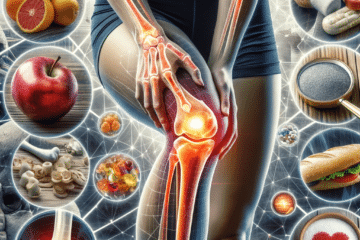
Most of my time as a surgeon is not spent in an operating room, or preparing for an operation.
Most of my day is spent listening, teaching, examining,educating, and empathizing.
As I’ve said for years … I treat patients and not MRI results. We all have our own goals, our own values and lifestyles which define us. Injuries have their own personality. The same injury or medical issue will present differently in most everyone you see. An ACL tear in a very active 45 year triathlete is a different injury than an ACL tear in a 45 year old obese diabetic who fell in the snow.
Pain is very subjective. Effects on quality of life are unique to the individual before me. Unless I dive into how the issue is affecting you I can not come up with an effective, customized treatment plan. My values have no role. Sometimes you just need reassurance that you are not broken.
My goal and job is to simply try and improve your quality of life… that can usually be accomplished if I listen, educate, and offer solutions with realistic achievable goals for your particular problem.
Patients are in our office because they are in pain. Many are also scared and worried. Because of pain, they will have loss of function and thus their injury becomes a quality of life issue. They are worried that surgery might be the only answer. They are worried that they are broken and will never be normal again.
Patients in pain live simultaneously in the past, present and the future.
Past : genetics — you didn’t do anything wrong. Degeneration or aging occurs, your DNA had a large role in why you are here with me today. Move past it and let’s work together to find a solution.
Present: I’m hurt now, what can we do to restore function and minimize the pain I have? Is this the new normal? Am I broken? Just because something is torn, does not mean it requires an operation.
Future: How will what I do now affect my future? Can I get by without surgery? Many people who choose to have surgery will do so because they are afraid of what will happen if they do nothing. Many do not understand the natural history of degenerative or traumatic conditions. Educating you plays a HUGE role in my involvement in your care in this regard. Having surgery to prevent something which may or may not occur, or may or may not worsen is often a poor choice.
Patients can’t help but ask … Am I Damaged ? Is my injury a normal consequence of aging? While I ever be normal again? Many will need to get past the fact that something is torn or wearing out, and does not require surgery for them to lead a long, active and healthy life.
“No, you’re not broken.”
Treat people not the MRI… Imaging technology is wonderful, but it is only a small part of the information we put together to determine what your most appropriate treatment is. It scares me how many people come in for second opinions and are shocked that I actually take the time to examine them. That scares me… imaging studies only provide us with but a small piece of data from which we need to construct an appropriate treatment plan. Relying on imaging studies alone means that far too many people will be over-treated for a condition that didn’t need anything but a brief education about the natural history of their orthopedic condition. So many of you are currently living with parts that are torn… and you don’t know it. It’s often normal. You’re not broken, and pain relief is possible without surgery if it ever flares up.
If I need an excuse to operate on someone I just need to get an MRI. Almost no one has a “normal” MRI. MRI’s are used far too often. But it is much easier to order an MRI than it is to talk to someone about why they do not need one. If you see a physician who takes the time to explain why further tests are not needed you might have a great doc before you.
An MRI can possibly complicate the problem. We are an over-diagnosed society. More than half of all MRIs do not need to be obtained. If we MRI 100 people without knee pain, many MRIs will show tears or arthritis. IF we MRI 100 people with NO shoulder pain beyond 40 years of age,there is a substantial chance of having a rotator cuff issue. SO … there is a good chance that the changes seen on your MRI were likely there before your “injury” and thus may not require aggressive surgical management.
Far too many of you will be treated for findings which were predictable simply because you were lucky enough to reach your age.
Often times, less is more.
BARF: Brainless applications of radilogical findings
VOMIT: Victim of modern imaging technology : Richard Hayward, BMJ, 2002.
Don’t be a victim.
Time is often your best ally. Sure, pain is awful, but it often goes away on its own. Amuse the patient while nature cures the disease … doing less is often doing more!
The “quick fix” is rarely a quick fix, or reasonable medical decision making. Hurry up and fix it before it gets better. A knee replacement in a morbidly obese poorly controlled diabetic is a nightmare waiting to happen. Control your diet, take an active interest in your own health. Be proactive. Stop smoking, eat a vegetable and put down that Big Mac and that donut. You exercised today!!??!! Awesome… no, that doesn’t mean you can put down a 500 calorie latte with a sugar drenched pastry. Don’t look to me to correct 20 years of neglect in an hour long surgery. Step up, I’ll help you— you would be amazed at how many ailments can be treated with adopting a healthy lifestyle. You will also save a huge amount of money because of all the medicines you may no longer need to pay for.
Sure … there are orthopedic issues that will rise past the threshold of requiring surgery. Some conditions will not get better on their own. You never cease to amaze me in the ways you find to injure yourselves. I’m also constantly amazed at the issues that modern science enables me to be able to treat.
When your symptoms rise to the point that”something” needs to be done I will be there to offer you surgical alternatives if there is a realistic chance that it will work and has the potential to meet your expectations.
The question to be asked is not can I operate to address your issue, the proper question is should I? Surgery is not always the answer and in some instances it can make your issue and quality of life worse. But if the right injury in the right person is addressed by the right surgeon in the right manner… a happy and satisfied patient should emerge from our interaction.
Often in medicine, and certainly in Orthopedic Surgery less is often more…
Sometimes it’s best to talk and do nothing more.














so glad I researched this…..I love the no surgery approach,,,,,,so many grab the knife and I wanted options…..
I’m a nurse who takes care of patient undergoing minor orthopedic procedures and this is a good point!
Patients are so obsessed in asking for MRI to confirm a diagnosis BUT it’s important for a knowledgeable doctor to assess and examine the patient first before jumping into this aggressive test. Great input and I respect your opinions and teaching!
Thank you!
I agree in 100% . Very useful and reliable articlet